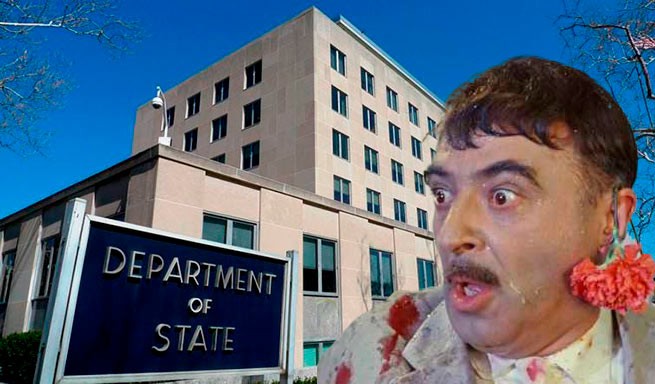The number of new COVID-19 infections continues to be high in Europe, and yet in many countries and in the EU as a whole, coronavirus restrictions have been significantly eased, if not lifted, since February.
Greece weakens some restrictions regarding Covid-19 due to the recent decline in daily infections. This was announced on Thursday at a daily briefing at the Ministry of Health, by Health Minister Thanos Plevris, specifying that the closure of restaurants and clubs at midnight will be lifted, and the ban on music will be lifted, which will now be allowed again in restaurants, bars and clubs. However, the requirements for seated clients will remain in place, the minister said. The lifting of restrictions will come into effect on Monday, January 31, 2022.
Europe is tired of quarantines, masks, lockdowns and movement restrictions. Given the high level of vaccination, countries one by one are canceling some measures, recognizing the reduction in danger.
Starting February 1, the EU recommends lifting restrictions on movement between countries within the community for those who have a European covid vaccination certificate. For those who have not yet been vaccinated, a PCR test will be required to cross the border. But if the reasons for travel are important circumstances, as well as for residents of border areas and children under 12 years of age, tests will not be needed. However, for those arriving from the “dark red” zones, restrictions are still in place, but this is not an obligation, but an EU recommendation.
From next month, Denmark will no longer consider the coronavirus dangerous to society. The government plans to lift all restrictions from February 1. In the country, it will again be possible to walk without masks, not to present a certificate of vaccination at the entrance to public institutions, and restaurants and clubs will be open at any time and without restriction of visitors. True, one requirement will still remain for the time being – for those arriving from countries with a high incidence rate, a PCR test is required.
However, the rate of new infections continues to rise. However, the government notes the low number of hospitalizations and the high vaccination rate in the country. In this regard, from next month, covid in Denmark will not be considered a dangerous disease. But, as it turned out, not everyone is ready to give up masks:
“We can’t take off our masks, no! Because it’s still early. Look how many people are infected around. This is not good at all.”
Since yesterday, wearing a mask in public has become a recommendation in the UK, not a requirement. You will not need to present a certificate of vaccination to attend events. An exception is the requirement of the organizers, who have the right to request it from site visitors. Similar measures are in Northern Ireland: the authorities have left the requirement for certificates only for nightclubs that will open in the near future.
There are more and more passengers on public transport and rail in the UK. The lifting of restrictions, especially the mandatory wearing of masks, was accepted by some Britons with relief, while others were not ready:
“It feels like these restrictions have been around for a hundred years. I’m still afraid and I’m still wearing a mask, but it’s still a great relief: for two years we were either not allowed out of the house, or restricted, and it was very tiring, especially for my peers. So yes, I’m still scared, but still very happy.”
From February 11, fully vaccinated travelers will be able to enter the UK without any restrictions, and unvaccinated travelers will not need to self-isolate, it will be enough to do tests.
In Austria, one of the toughest lockdowns in the EU for the unvaccinated is ending – in mid-November, they were only allowed to leave their homes for a supermarket, pharmacy or for a short walk. From January 31, these restrictions are lifted, but the law on compulsory vaccination comes into force – the first of its kind in Europe. The government promises to notify all households of the new requirements in writing, giving everyone the opportunity to get vaccinated. Approximately one and a half million Austrians remain unvaccinated today.
From mid-March, the attitude towards the unvaccinated in Austria will become tougher – the police will check the availability of a vaccination certificate, and the fine for not vaccinating will be up to 600 euros. Children and adolescents, pregnant women, those who have recently been ill and who have contraindications to vaccination are exempted from compulsory vaccination.
In France, teachers go on strike on Thursdays, demanding clear and unchanging rules from the government – in recent days they have changed several times in relation to infected people found in schools, which tired both parents and teachers:
“The way they are trying to deal with this crisis has made our job extremely difficult. In the Marseille schools, the teachers are falling like dominoes.”
From Monday, France is also promising relief. One of them is the ability to walk the streets without masks. But passes for certificates of full vaccination are still required to be presented almost everywhere.
Greece weakens some restrictions regarding Covid-19 due to the recent decline in daily infections. This was announced on Thursday at a daily briefing at the Ministry of Health, by Health Minister Thanos Plevris, specifying that the closure of restaurants and clubs at midnight will be lifted, and the ban on music will be lifted, which will now be allowed again in restaurants, bars and clubs. However, the requirements for seated clients will remain in place, the minister said. The lifting of restrictions will come into effect on Monday, January 31, 2022.






More Stories
Shocking report from Japanese scientists: “Cancer deaths increase sharply after mass Covid vaccination”
Study: Scientists have discovered why children are more susceptible to coronavirus
22 arrests and confiscations took place in Italy and other EU countries in the case of "covid" EU funds (video)